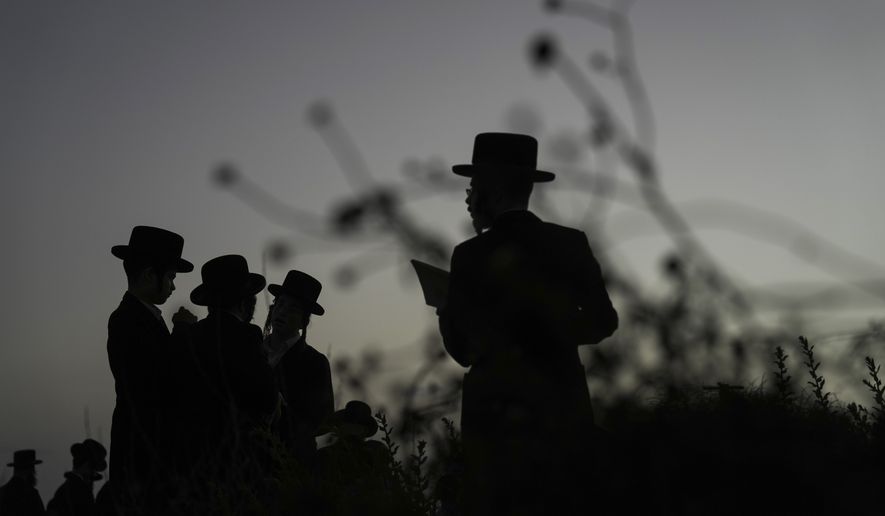Parents in Farmington, Connecticut, are fuming over the local school board’s decision to drop Rosh Hashanah and Yom Kippur, two of Judaism’s “high holy days,” from the list of school closings, as well as its refusal to add Diwali, a Hindu observance.
School has been closed in Farmington, a town 10 miles west of Hartford, for the two Jewish holy days since 1999. They were dropped from the list of annual closings at a Nov. 14 board meeting, when the proposed Diwali addition was also discussed, board chair Liz Fitzsimmons said in a letter to parents.
The school board voted to retain Indigenous Peoples/Italian-American Heritage Day — a holiday widely known as Columbus Day — and Good Friday, which Christians honor as the day of Jesus’ crucifixion and death.
“The criteria that we use to make our decision is the same for any holiday that we have discretion over,” Ms. Fitzsimmons wrote in the letter. “There is no legal obligation to provide a school day off for a religious holiday unless it creates an operational impact.”
Those “operational impacts” would include “excessive student or faculty/staff absences,” but did not state whether adding the Diwali holiday or keeping the Jewish holy days would cause “excessive” absences.
She said the board “truly believe[s] that there is more than one way to honor and acknowledge a holiday. Just because a holiday is not a day off from school, does not lessen its importance.”
“If a student wants to take a religious holiday off, such as Diwali, Yom Kippur or Rosh Hashanah (or any religious holiday) … it is an excused absence and the student would receive no negative consequences for doing so,” she wrote.
The holidays dropped or denied by the school board are of great significance to adherents. While practices vary between the major branches of Judaism — Orthodox, Conservative, Reform and Reconstructionist — many Jews spend Rosh Hashanah, the “Head of the Year,” attending prayer services. They also fast on Yom Kippur, the Day of Atonement, and worship in synagogues.
Diwali, which is observed by Hindus, Jains, Sikhs and some Buddhists between mid-October and mid-November, celebrates a spiritual victory of “light over darkness.” The first day of the five-day festival, called “Dhanteras,” is a symbol of renewal, adherents say.
Suraj Kurtakoti, who led a campaign to add the Diwali holiday — which he said was observed by 150 families with a total of more than 300 Farmington students — told the Hartford Courant he was at a loss on what to do next. The town had a population of 26,712 in 2020.
“We are finding ourselves in kind of a helpless situation because we don’t know what else to do. I mean, we have done everything,” Mr. Kurtakoti told the newspaper.
Farmington’s excused absence policy isn’t encouraging to those who liked the previous school board calendar.
In an email, David Waren, president of the Jewish Federation of Greater Hartford, said the organization disapproves of the school board’s moves.
“We are deeply disappointed by the Farmington School District’s decision to remove Rosh Hashanah and Yom Kippur and to not add Diwali to their school calendar,” Mr. Waren said. “It goes against the trend in many increasingly diverse communities to expand days off for religious observance and thereby nurture more inclusive environments.”
Parent Amy Rosenfeld told the Courant she was “really shocked and disappointed” over the removal of the Jewish holy days.
“Farmington says that a goal for our students is to be global citizens,” Ms. Rosenfeld said. “And when you’re eliminating any ability for people to celebrate their cultures and their religious experiences except for white Christians, you’re not building global citizens,” she said.
Mr. Waren said he hopes Farmington’s school board will change its mind.
“This new policy has engendered widespread anger across our community,” he said. “We urge school officials to reverse their decision.”
• Mark A. Kellner can be reached at mkellner@washingtontimes.com.




Please read our comment policy before commenting.